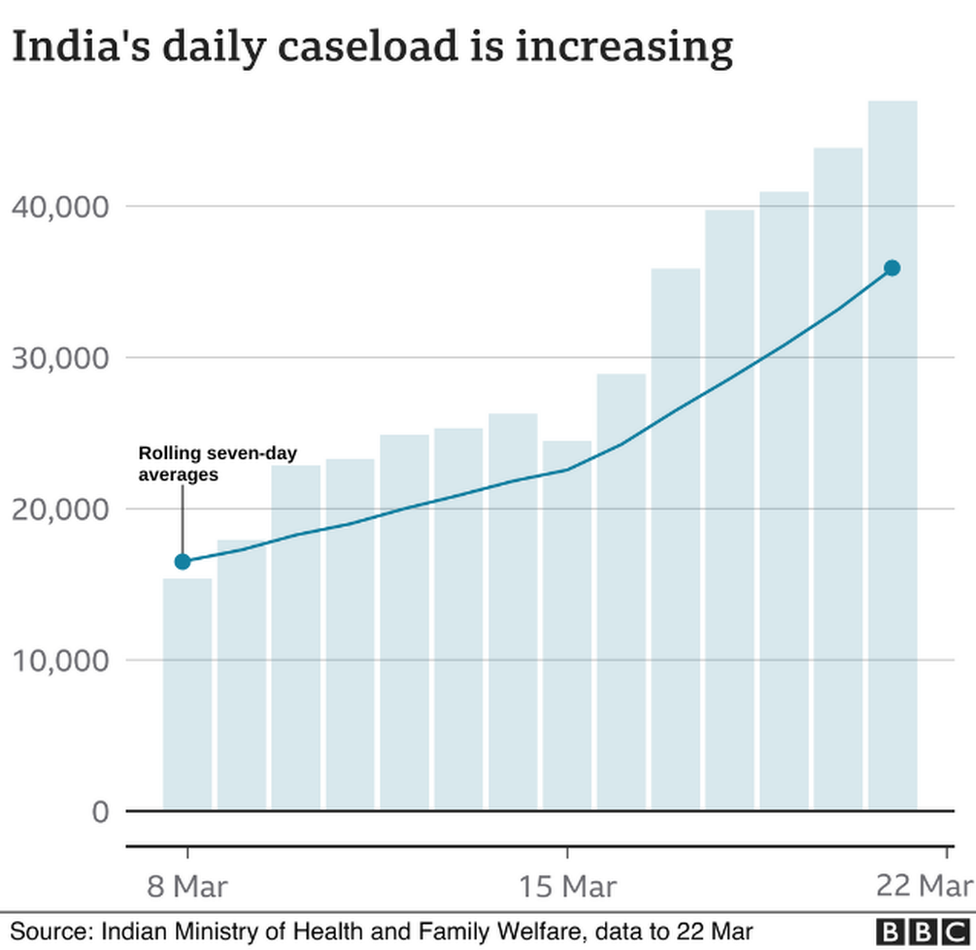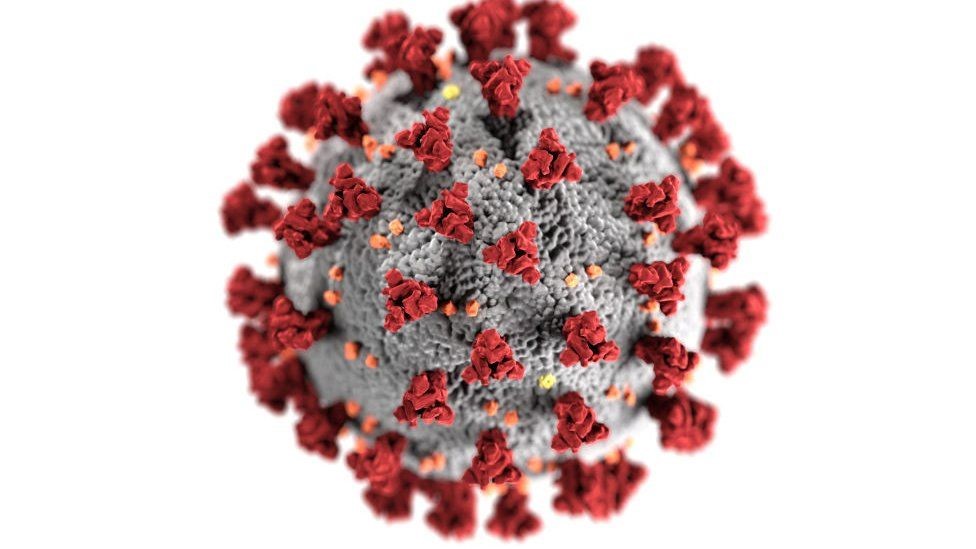A new variant of the coronavirus with a “double mutation” was found in samples collected in India.
Officials are examining whether the variant – with two mutations occurring in the same virus – might be more contagious or not very effective with vaccines.
A total of 10,787 samples from 18 Indian states also showed 771 variants, 736 from the UK, 34 from South Africa and one from Brazil.
Officials say the variants are not linked to a surge in cases in India.
India reported 47,262 new cases and 275 deaths as of Wednesday, March 24, the daily high this year.
The SARS-CoV-2 Consortium on Genomics (INSACOG) group, a group of 10 laboratories under the Indian health ministry, carried out genome sequencing of the samples found.
This genome sequence is an experimental process to map the genetic code of an organism, in this case a virus.
Mutations in viruses are common but mostly insignificant and do not cause changes in the ability of the virus to transmit or cause serious infection. But some mutations, such as those in the UK or South Africa, can make the virus more contagious and in some cases more deadly.
Virus expert Shahid Jameel said “multiple mutations in the viral protein can increase the risk and cause the virus to escape from the immune system”.
The protein coat in viruses is part of the virus that is used to penetrate human cells.
The government said analysis of samples collected from the state of Maharashtra showed “an increase in the fraction of samples with the E484Q and L452R mutations” compared to December last year.
“Mutuasi [ganda] causes immunity to be released and increases transmission, ” the health ministry said in a statement.
Are multiple mutations worrying?
Smitha Mundasad, health journalist BBC
Viral double mutation is a scary word. The word means Indian scientists found two important mutations at different locations in a variant of the same virus.
The findings are not surprising.
Viruses are always mutating but the question that needs to be answered is: does this double mutation change the movement of the virus? Is this variant more contagious now or will it make the disease more virulent? Even more important is whether the current vaccine can be effective?
Scientists are now busy looking for answers. Officials say since the number of tests that come out with multiple mutations is low, it is not currently possible to say that the latest increase in India is due to multiple mutations.
What is clear is that action needs to be taken after these findings. Increase testing, contact tracing, isolate when there are cases and use of masks and keep your distance.
Regarding vaccines, so far, there are many variants of concern, so far it has proven to be effective in dealing with immunization.
Scientists believe, if needed, existing vaccines can be modified to deal with new mutations.
Multiple mutation variants have not spread in society
The Indian government has denied any increases related to mutations.
“Although multiple mutations were found in India, the numbers found were not sufficient to directly link the increase in cases in a number of states,” the health ministry said.
The latest report comes after a number of experts asked the government to step up genome sequencing efforts.
“We need to constantly monitor and ensure that no variant is spreading among the population. The fact that it is not happening now does not mean it can happen in the future. And we have to make sure we get enough evidence in advance,” Dr Jameel told reporters. BBC this month.
 BBC
BBC India is the fifth country in the world to carry out a genome sequence for the corona virus.
More than 11.7 million cases and 160,000 deaths have been recorded in India so far and efforts to identify the mutation are continuing.
India is the third highest country in the world after the United States and Brazil.
The latest advance, which started this month, came during what experts have called a vulnerable phase in India.
India’s health system has been disrupted by efforts to fight the virus this year.
States have started to reimpose restrictions including curfews and scheduled quarantines.
Two major cities, Delhi and Mumbai, have carried out rapid tests at random airports, train stations and crowded places such as shops.
–


